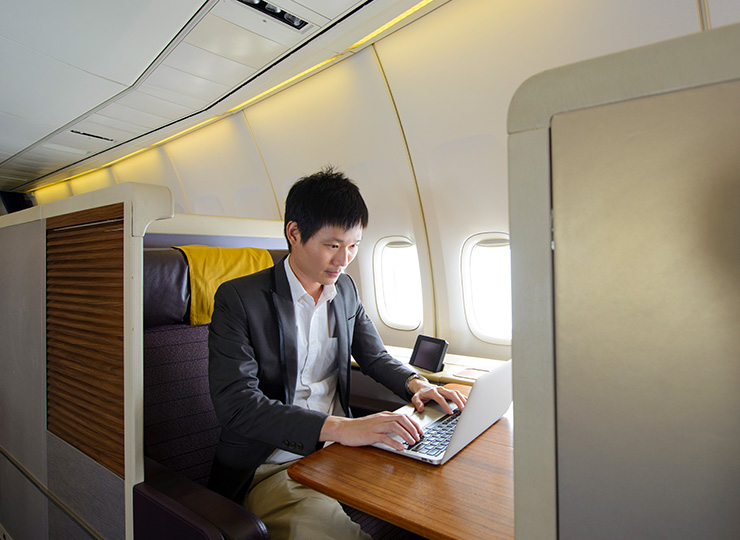

Exploring the unique aspects of travel procurement
Travel procurement can be complex. Purchasing travel products and services is vastly different from buying office supplies, with travel procurement professionals negotiating contracts for short, medium, and long-term performance objectives in a dynamic demand and pricing environment – all while delivering on often competing objectives for the business and its employees.
Travel procurement involves the strategic sourcing and management of various travel-related services, such as airlines, hotels, rental cars, and other transportation options. Business travel is an expense for organisations, and effective travel procurement helps control costs while increasing internal efficiency, improving employee performance, and enhancing traveller satisfaction.
By managing the various travel procurement components strategically, businesses can negotiate better rates and discounts, achieve significant cost savings, increase operational efficiency, improve compliance and risk management, and provide a better experience for travelling employees.
Travel procurement differs from other procurement verticals in the following ways:
- Complexity: Travel procurement involves a range of complex and dynamic components, including airlines, accommodation, transportation, and other services. Supplier contracts and service usage may vary by region, country, seasonality, user status, and booking channel. This requires specialised expertise, forecasting capability, and ongoing policy review and performance management to ensure that all components are sourced and managed to maximum effect.
- Real-time updates: Travel procurement operates in a fast-changing and highly dynamic pricing and demand environment. Product availability requires real-time updates and adjustments to ensure that travellers have access to the best possible inventory, rates, and services.
- Traveller experience: The quality of the travel experience is a critical component of travel procurement as it directly impacts traveller and employee satisfaction, which can lead to a direct impact on productivity and performance. This requires a focus on personalisation and customisation to meet the unique needs of the individual traveller, balanced with the business’s commercial objectives.
- Relationships: Effective travel procurement requires strong relationships with travel suppliers to negotiate preferential rates and inclusions, as well as delivering ancillary preferential benefits in unforeseen circumstances, all adding to the overall contract value.
In comparison, other procurement verticals often present more consistent buying trends and considerations. For example, manufacturing procurement may focus more on supplier quality and supply chain management, while IT procurement may prioritise security performance and data privacy.
Travel Procurement complexity
From airlines to accommodation and ground transportation, each travel supplier category requires regular review and negotiation to align with your current and evolving business objectives regarding budget, safety, and sustainability.

Airline agreements play a significant role in travel procurement as flights often constitute a substantial proportion of business travel budgets. Efficient management of air travel can lead to significant cost savings. Negotiations with airlines typically involve considerations such as:
- Total travel spend
- Market share
- Route deals
- Fare class usage
- Sustainability initiatives
- Wellness offerings
- Frequent flyer programmes
- Inclusion of low cost carriers (LCCs)
- Airline networks
- Modern slavery governance/compliance
Accommodation agreements are often based on:
- Hotel chain agreements
- Room night volumes
- Extended stays
- Room type usage
- Seasonal rates
- Group travel requirements
Safety, security, and environmental practices of the accommodation providers are also often assessed to ensure compliance and promote responsible practices.
Ground transportation procurement involves securing favourable rates and contracts with car rental companies or private transfer services. Managing travel policies and compliance, as well as monitoring availability and usage, are essential components. While car rental negotiations primarily focus on expenditure, there may be opportunities for specialised deals in cases where businesses require niche vehicles such as commercial or mine specification vehicles.
The cost of traveller friction in travel procurement
Procurement professionals often focus on sourcing strategies that prioritise cost, however procuring travel services based on cost alone rarely equates to a successful travel programme.
Cost-driven travel procurement may have more negative impacts on the travelling employee, and therefore the business, than those that are experience-driven. Travel procurement needs to be strategic and holistic in nature, with consideration given to increasing traveller productivity, health and well-being, and sustainability.
Compliance
Your employees’ compliance with the corporate travel policy and contracted supplier agreements is key to achieving savings and maximising supplier leverage. Ensuring your travel tools and processes support your supplier contracts and encourage policy compliance, with bookings made via agreed corporate booking channels for increased visibility and consolidation of travel spend, is critical to meeting your supplier agreements and maximising future negotiation power.
Equally, it is important to ensure your contracted suppliers are meeting their obligations, such as service level agreements, service performance (for example on-time flight performance) and identifying and addressing any issues or non-compliance as part of your future negotiations.
Dynamic pricing
Travel pricing presents complexities because the cost of a service is not static and, as such, airfares and rates vary significantly depending on supply, demand, capacity, operational costs, market conditions, seasons, and destinations. Travel procurement professionals can use technology and data analytics to help them monitor and manage travel spend and volumes to gauge the success of the program.
Need for real-time updates and adjustments
To effectively manage real-time updates and adjustments, travel procurement professionals must have access to up-to-date information and be able to communicate quickly and efficiently with travellers, suppliers, and other business stakeholders. This requires the use of technology that enables real-time reporting, tracking, and communication, such as fully integrated business intelligence platforms, travel management platforms, mobile apps, and messaging services.
Impact of external factors on travel procurement
Weather, political instability, and natural disasters can all have an impact on pricing. Political instability may increase travel costs due to additional security measures, or the need to reroute or cancel travel. Further, natural disasters may disrupt transportation and damage infrastructure, making it difficult to procure necessary services. No matter the impact, it can all lead to unplanned, increased costs.
Importance of traveller experience
According to a GBTA 2023 Business Travel Outlook Poll, traveller safety and security, and traveller experience/wellbeing, are in the top 5 strategic priorities for business travel programs in 2024. Traveller satisfaction is a key metric for procurement success because happy travellers are more likely to have a productive trip and be more engaged with their work and be more willing to travel for business overall.

The role of supplier performance
A supplier’s performance directly impacts the quality of services that travellers receive. For example, if a hotel supplier consistently fails to meet service level agreements, such as room cleanliness or responsiveness to requests, it can lead to negative feedback from travellers and a decrease in overall satisfaction and willingness to travel. This can also result in lower compliance rates with travel policies as travellers may seek alternative options outside of preferred suppliers.
Poor supplier performance can result in lower efficiencies for procurement teams, spending time and effort managing supplier relationships and resolving issues.
On the other hand, strong supplier performance can lead to increased traveller satisfaction, compliance with travel policies, and significant cost savings for the business. When suppliers consistently meet or exceed service level agreements and negotiate favourable rates, it can result in improved overall travel programme compliance and performance, better control over travel spend, and a more streamlined contracting process for all stakeholders in the procurement process.
Driving Success
Travel procurement is a dynamic category and requires a deep understanding and expertise of the travel landscape, supply chain, and travel booking trends to drive effective outcomes for the business and its employees. Despite the challenges, successful travel procurement can result in significant cost savings, increase operational efficiency, improve compliance and risk management, and provide a better experience for travellers and employees.
Looking to streamline your travel procurement process?
Enhance your travel procurement strategy with the expertise of our team!




